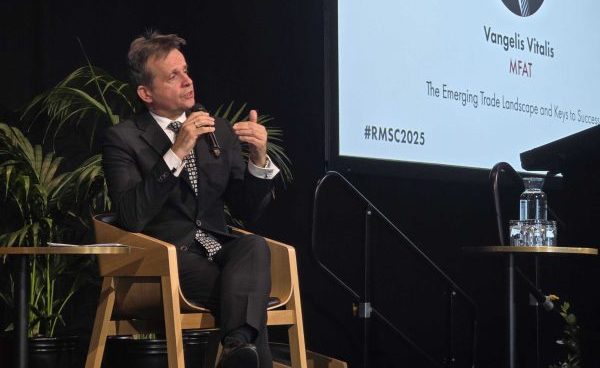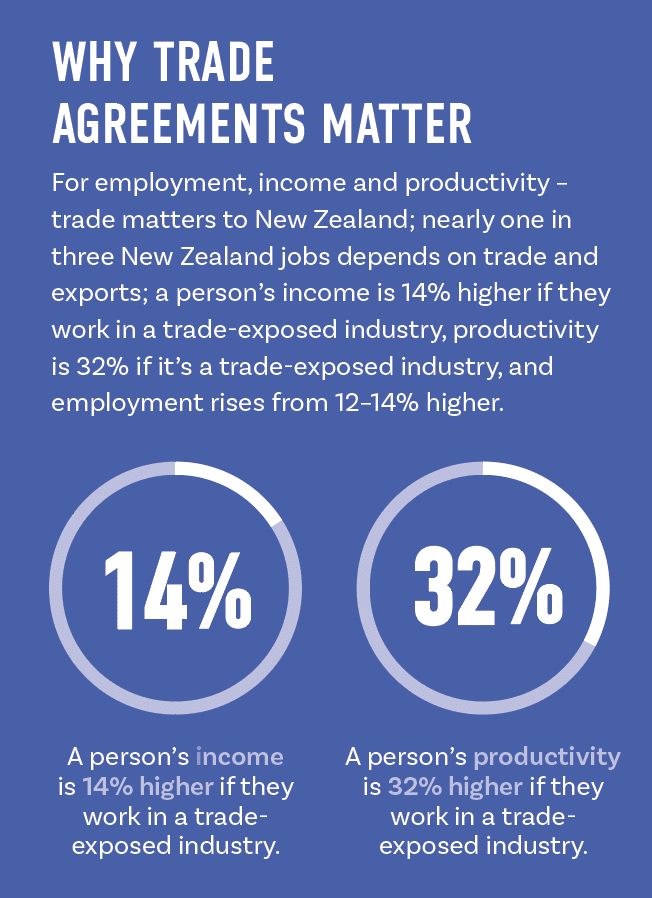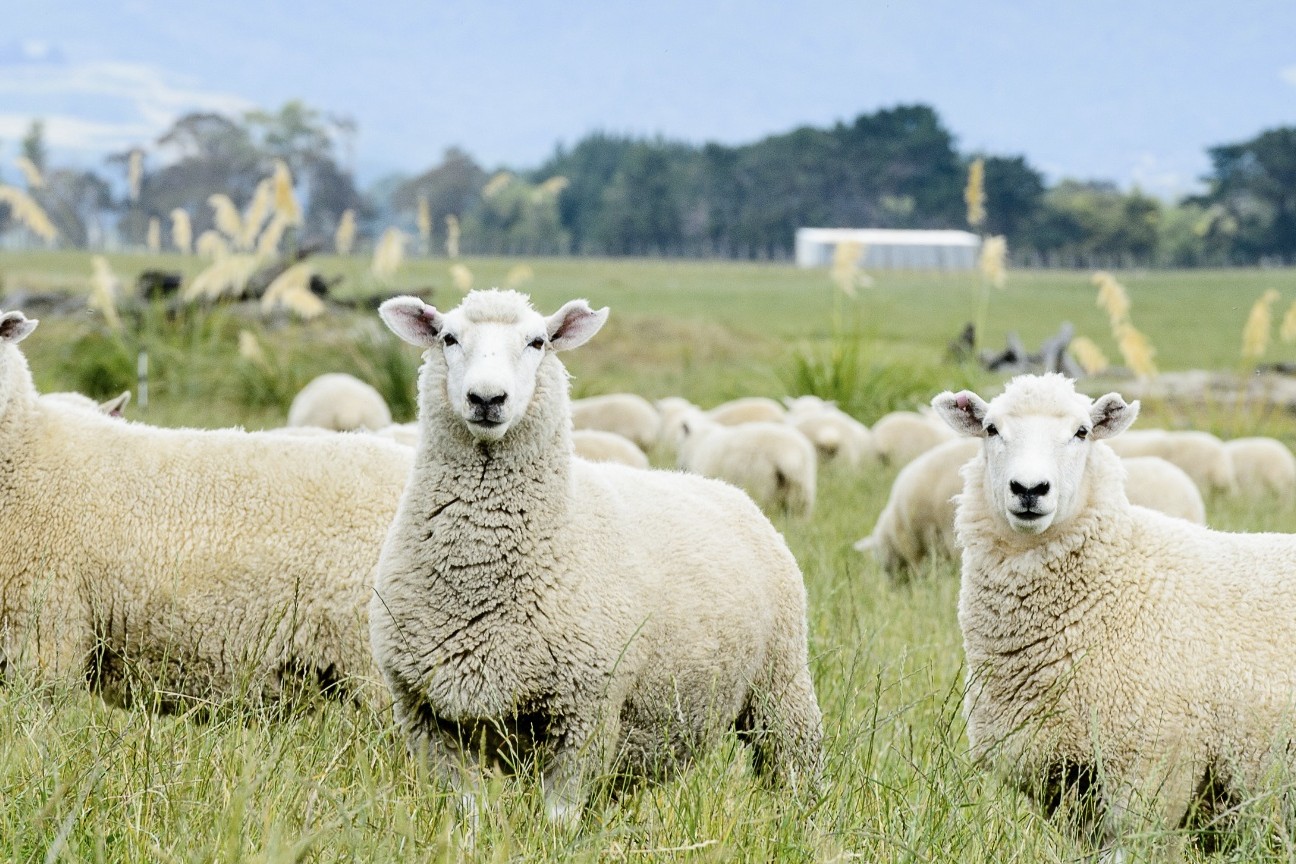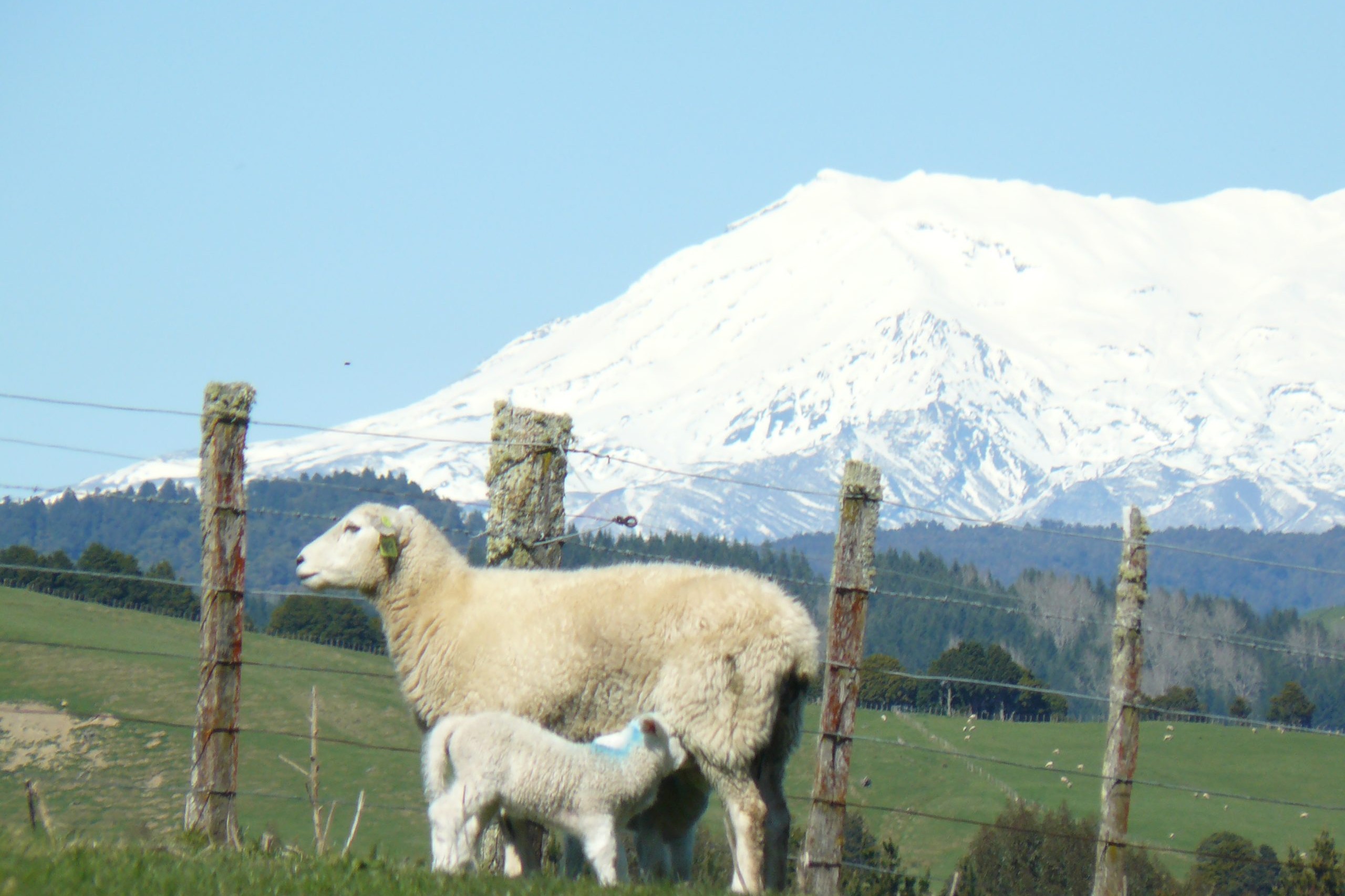Tackling non-tariff barriers
In a world where certainty is in short supply, our former chief trade negotiator believes that opportunity remains if we appreciate the growing importance of environmental standards in New Zealand’s trade agreements. Words Sarah Perriam-Lampp.

 A leading figure in New Zealand’s trade negotiations laid bare the complexities and uncertainties facing exporters in today’s global environment at the 2025 Red Meat Sector Conference in Christchurch in August.
A leading figure in New Zealand’s trade negotiations laid bare the complexities and uncertainties facing exporters in today’s global environment at the 2025 Red Meat Sector Conference in Christchurch in August.
“Anyone who tells you that they know what’s happening in international trade policy at the moment is simply not telling the truth, because none of us really know what is happening day by day, and that is a real challenge for exporters,” says Vangelis Vitalis, current Deputy Secretary of the Trade and Economic Group for the Ministry of Foreign Affairs and Trade (MFAT).
Vangelis explained to the audience how global tariffs are ricocheting around the world in a new era of uncertainty for the commitment of our partners to stick to our trade agreements rules.
In a sobering assessment of current challenges he highlighted how they have been layering bilateral and multilateral and plurilateral free trade agreements for years as the roadmap for resilience and diversity for New Zealand exports.
“The jungle has grown back. All the big players are starting to step outside the rules, and the world is a much more uncertain place now.”
The ‘golden weather’ age of trade from 1995 to about 2017 has long gone, he says.
“We are not there any more. We are in a much more challenging situation. The big guys think they can operate outside the rules. We are in a world of incredible turbulence and uncertainty. That is not something we are used to.”
In addition to the geopolitical challenges, the wars in Ukraine and the Middle East are affecting trade, particularly for a distant economy like New Zealand, which relies on shipping products through key channels. This uncertainty alone was equivalent to a tariff, estimated to be between 12–20%, Vangelis says.
A key focus for the New Zealand Ministry of Foreign Affairs and Trade was on negotiating new Free Trade Agreements (FTAs), but equally important was maintaining and protecting New Zealand’s current FTAs amid this global turbulence.
“This is not just about the United States and President Trump,” says Vangelis. “It’s about what we do to respond to this changing environment.”
It’s not just tariffs that are the issue, it’s also the subsidies other countries provide to support their farmers, he says. Even a small change in subsidies could significantly impact prices. The focus now is on resilience: protecting the trade agreements already in place and seeking new opportunities.
He also underscored the need to tackle non-tariff barriers such as subsidies, which cost the agriculture sector billions annually. “We’re setting up a new unit in my group to deal with non tariff barriers specifically … we know from research that the agriculture sector, more generally … is facing per year in the Asia Pacific region alone, $22.6 billion worth of those non-tariff barriers against New Zealand exporters.
“We were one of the last countries to negotiate a trade agreement with the European Union. Effectively, all we’ve done is catch up and level the playing field with our competitors.”
Vangelis told the audience that during the European Union and United Kingdom FTA negotiations, he fielded hundreds of questions – most of them around the environment and the sustainability of New Zealand products. Nearly 85% of the questions from the United Kingdom were about the environment, and another 10% concerned animal welfare. In the European Union, of the 900 questions received, an estimated 92% were about the environment.
Two examples of the questions he was asked:
“What is so sustainable about New Zealand consumer goods having to travel 19,000km in sea containers or cargo planes before they reach our supermarkets? How will you address the methane emissions that result?”
“Do you agree that it is unfair to expect EU farmers to become more sustainable and comply with nitrogen rules, while at the same time opening the door to products from New Zealand farmers with ‘lower nitrogen standards’?”
Vangelis emphasised that environmental standards are growing in importance in our trade agreements. “The environment and our environmental record has become an increasing feature of the way in which we’ve had to deal in front of those trade agreements.
“I do not think that in three or five years’ time, when these agreements come up for renewal, there will be fewer questions about the environment and our sustainability,” he concludes.
He says it is a reminder to be on our game in terms of the story we tell, how we tell it, and ensuring that it is credible – that we can prove it with on-farm compliance.




